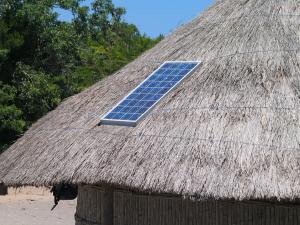
Solar Geysers versus Heat Pumps for the South African Climate
Discover more about alternative energy options and replacing conventional water heating
CAPE TOWN, WESTERN CAPE, SOUTH AFRICA, January 18, 2019 /EINPresswire.com/ -- At this point in time, there is no need to get into obvious reasons for switching to renewable energy. Apart from the environmental necessity, the current state of affairs at Eskom is not showing signs of letting up. Instead, higher tariffs are being requested in a desperate attempt to simply cover significant debt for the singular energy provider.The logical solution is to make the switch to renewable/alternative energy sources. And one of the more significant steps South Africans can take would be to replace the conventional water heating system in their homes. Given that almost 50% of energy costs can be tied to the geyser, considering options like solar panels and heat pumps to take over the responsibility can save a lot of money.
But which one is better, the solar geyser or the heat pump?
At face value, the solar geyser might be the first solution to jump to mind. Based on the sunny climate of the country, nobody can go wrong by investing in solar. However, this does not mean it is the perfect solution for every household or business. And to get a better perspective on what these alternative energy sources offer, here is a breakdown of pros and cons.
Solar Geyser Pros and Cons
Pros:
- The initial investment is typically more affordable
- The installation process is less complicated
- The lifespan of a solar array is longer
- Effectively heats water up to 70 - 80 degrees Celsius
- Does not require a connection to the power grid
- Little to no maintenance
- No moving parts and very durable
Cons:
- Needs to be installed and mounted at a specific angle
- Depends on the grid during the night and through cloudy weather (assuming there is no battery bank)
- Slightly less efficient than a heat pump
Heat Pump Pros and Cons
Pros:
- Does not require a specific spot or angle during installation
- The energy produced depends on temperature variations, not sunlight, meaning it is not limited to day time like solar (assuming the solar array does not have a battery bank)
- Effectively heats the water up to 85 degrees Celsius
- Uses only a third (33%) of the energy it takes a conventional geyser element to heat water
Cons:
- Higher initial investment
- The life span of a heat pump averages between 5 and 10 years, whereas solar can be effective for up to 20 years
- Heat pumps run on electricity, although they are incredibly efficient
At the end of the day, South Africans need to look at their situation, compare the pros and cons, and make an informed decision. The good news is that Solar Advice stocks both solar geysers and heat pumps. Plus, objective advice about these systems is also available, just in case more clarity is necessary.
A Da Silva
Solar Advice
+27 616969153
email us here
EIN Presswire does not exercise editorial control over third-party content provided, uploaded, published, or distributed by users of EIN Presswire. We are a distributor, not a publisher, of 3rd party content. Such content may contain the views, opinions, statements, offers, and other material of the respective users, suppliers, participants, or authors.


